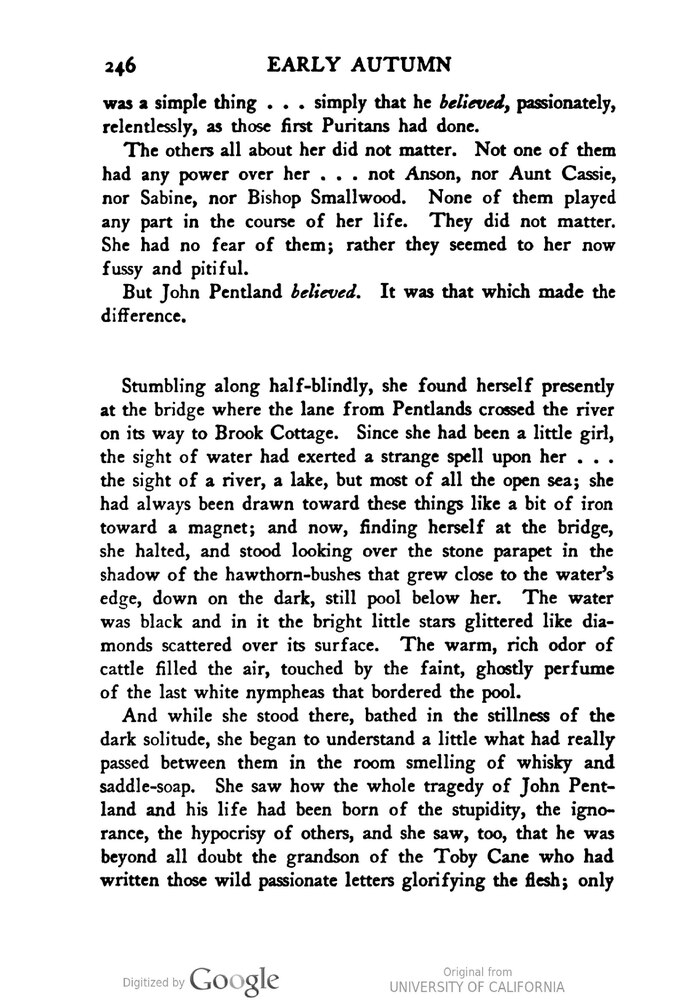was a simple thing . . . simply that he believed, passionately, relentlessly, as those first Puritans had done.
The others all about her did not matter. Not one of them had any power over her . . . not Anson, nor Aunt Cassie, nor Sabine, nor Bishop Smallwood. None of them played any part in the course of her life. They did not matter. She had no fear of them; rather they seemed to her now fussy and pitiful.
But John Pentland believed. It was that which made the difference.
Stumbling along half-blindly, she found herself presently at the bridge where the lane from Pentlands crossed the river on its way to Brook Cottage. Since she had been a little girl, the sight of water had exerted a strange spell upon her . . . the sight of a river, a lake, but most of all the open sea; she had always been drawn toward these things like a bit of iron toward a magnet; and now, finding herself at the bridge, she halted, and stood looking over the stone parapet in the shadow of the hawthorn-bushes that grew close to the water's edge, down on the dark, still pool below her. The water was black and in it the bright little stars glittered like diamonds scattered over its surface. The warm, rich odor of cattle filled the air, touched by the faint, ghostly perfume of the last white nympheas that bordered the pool.
And while she stood there, bathed in the stillness of the dark solitude, she began to understand a little what had really passed between them in the room smelling of whisky and saddle-soap. She saw how the whole tragedy of John Pentland and his life had been born of the stupidity, the ignorance, the hypocrisy of others, and she saw, too, that he was beyond all doubt the grandson of the Toby Cane who had written those wild passionate letters glorifying the flesh; only
